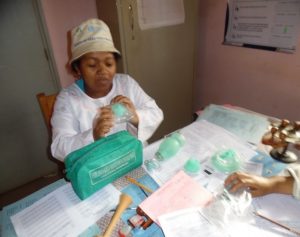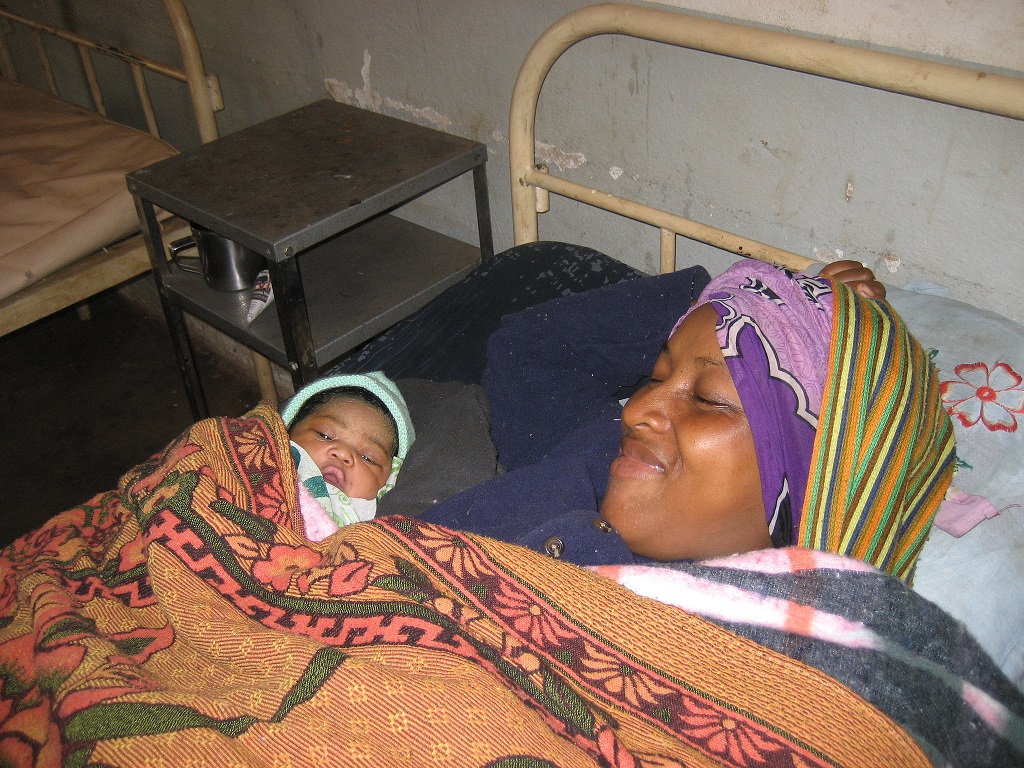Midwife Marielle “Rasazy” Bezafy is the provider in charge of the delivery ward at the Centre de Santé de Base II (primary health center II) in northeastern Madagascar.
When Rasazy began working at the center, she received a list of duties from the district’s Chief of Medicine along with a cupboard full of new, neatly-arranged and inventoried medical materials. These included a group of resuscitators and penguin suckers which, at the time, Rasazy was unclear how to use. She set them aside and made a mental note to learn more about them in the future.
A few months later, Rasazy was selected to participate in a five-day MCSP training for maternal and newborn health (MNH) providers on prevention of postpartum hemorrhage, newborn essential care, and newborn resuscitation. She proved to be an enthusiastic participant and avid leaner; by the end of the training, she earned a 100% competency score in the category of newborn resuscitation, which was evaluated with the use of anatomical models.
After multiple demonstrations and practicum sessions using the models, Rasazy and her fellow participants requested a donation of similar resuscitators. (Until then, they had been using only obstetrical stethoscopes to resuscitate newborns.) The newly trained providers saw the value in the evidence-based methods and protocols taught by MCSP, and were empowered to bring those standards back to their health centers.

When Rasazy returned to the health center, she asked her supervisor to review the facility’s stored medical materials. Her inquiries led her to rediscover the group of resuscitators and penguins which — together with her newly acquired knowledge — she began to use regularly in her practice.
Soon after, Felicie Raharinirina, accompanied by her mother-in-law, arrived at the center to deliver her baby. Her son, Albert, was born several hours later via a natural delivery, but with meconium-stained amniotic fluid, which causes fetal distress and, if untreated, can lead to newborn asphyxia and death.
Rasazy quickly reached for a resuscitator and penguin sucker. Alarmed, Felicie’s mother-in-law exclaimed, “But what is she doing with these bizarre instruments!”
Deftly, Rasazy performed a few rounds of suction, stimulation and ventilation, then cut the umbilical cord. The baby began to breathe! It was only then that Rasazy could give a reply: “Using such equipment saves lives.”
It is through interactive, practice-based MNH trainings that providers like Rasazy are able to learn how to utilize lifesaving equipment and techniques. In trained hands, the resuscitator and penguin sucker — which had sat neatly in the health center’s cabinet — saved the life of little Albert.

